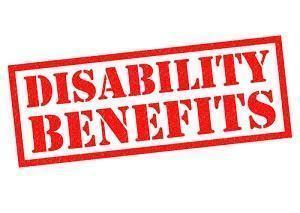Recent Blog Posts
Variables Involved in Parent's Right of First Refusal
 A parenting plan sets the schedule for when children stay with parents who live apart, but Illinois courts generally presume that separated parents should be able to expand their parenting time when circumstances allow it. That is why some parenting plans include a right of first refusal for each parent. Special circumstances sometimes prevent a parent from being able to watch the children during his or her scheduled parenting time. The right of first refusal requires the unavailable parent to offer the other parent a chance to watch the children before asking a third party. Separating parents may agree to this provision because they know that the children are best off being with one of them. However, there are several variables to a right of first refusal provision that can cause disagreements.
A parenting plan sets the schedule for when children stay with parents who live apart, but Illinois courts generally presume that separated parents should be able to expand their parenting time when circumstances allow it. That is why some parenting plans include a right of first refusal for each parent. Special circumstances sometimes prevent a parent from being able to watch the children during his or her scheduled parenting time. The right of first refusal requires the unavailable parent to offer the other parent a chance to watch the children before asking a third party. Separating parents may agree to this provision because they know that the children are best off being with one of them. However, there are several variables to a right of first refusal provision that can cause disagreements.
Conditions
It may be impractical for a parent to be required to contact his or her co-parent every time he or she needs childcare. The co-parents must also decide how the transfer of the children would work. A right of first refusal provision includes conditions that clarify when and how the provision is used. This may include:
Financing the Cost of Your Divorce
 Divorce is an expensive process. Beyond what you may give up in the divorce settlement, you are responsible for paying attorney and court fees. You may need an alternative form of financing if your available income cannot pay for your legal fees. Establishing credit or liquidating assets involves its own risks. You must carefully consider the consequences of each form of financing before making your decision.
Divorce is an expensive process. Beyond what you may give up in the divorce settlement, you are responsible for paying attorney and court fees. You may need an alternative form of financing if your available income cannot pay for your legal fees. Establishing credit or liquidating assets involves its own risks. You must carefully consider the consequences of each form of financing before making your decision.
Bank Loans and Credit Cards
If you have a good credit rating, you can pay your legal fees by taking out a loan or charging it to a credit card. Naturally, you will pay more over time because of interest. However, you must also consider what level of payments you will be able to afford after your divorce. You, and not your spouse, are responsible for the debt you create after you file for divorce.
Personal Loans
Perils of Dating Too Soon After Divorce
 Dating after divorce would be simpler if there was a set amount of time after which you knew you were ready to start a new relationship. Emotionally moving on from your marriage is a process, not a time period. Divorcees create arbitrary waiting periods because they know they should not immediately jump into a new relationship. However, you cannot predict how long your emotional recovery will take. Entering into a relationship too soon after a divorce can lead to impulsive decisions and unfortunate consequences.
Dating after divorce would be simpler if there was a set amount of time after which you knew you were ready to start a new relationship. Emotionally moving on from your marriage is a process, not a time period. Divorcees create arbitrary waiting periods because they know they should not immediately jump into a new relationship. However, you cannot predict how long your emotional recovery will take. Entering into a relationship too soon after a divorce can lead to impulsive decisions and unfortunate consequences.
Still Recovering
Divorcees may feel the desire to start dating again before they are emotionally ready for a new relationship. Dating fills a void left by the divorce and distracts you from addressing your underlying emotions. During a new relationship, you can tell that you have not moved past your divorce if:
- You measure your new partner against your former spouse;
Reactions to Infertility Can Lead to Divorce
 Learning that you or your partner is infertile can be one of the most difficult challenges a marriage will face. Your feelings may be similar to how you would react to a death: grief, denial, anger, depression and acceptance. In a way, you are mourning the loss of a biological child you and your partner will never share. Amid the grief and seeking alternative means to have children, it is easy to miss signs that your marriage is in trouble. Infertility can bring a couple closer together but can also cause a division that leads to divorce.
Learning that you or your partner is infertile can be one of the most difficult challenges a marriage will face. Your feelings may be similar to how you would react to a death: grief, denial, anger, depression and acceptance. In a way, you are mourning the loss of a biological child you and your partner will never share. Amid the grief and seeking alternative means to have children, it is easy to miss signs that your marriage is in trouble. Infertility can bring a couple closer together but can also cause a division that leads to divorce.
Emotional Reaction
Both people in a marriage may feel shock and sadness at the news that one of them is infertile. The infertile spouse often feels guilty and inadequate, especially in the case of women. The other spouse may feel disappointed and uncertain of the future if having children is one of his or her goals in life. Negative emotions can cause couples to react in unhealthy ways, such as:
How Veterans Benefits Are Treated During Divorce
 Settling a divorce involving a veteran of the U.S. military can be more complicated than with a typical divorce. Federal and state laws determine how veterans benefits may be divided during the divorce. With the varying types of benefits a veteran can receive, divorcing spouses may have difficulty differentiating between them. Some benefits are treated as marital property, while others are exempt from division. The duration of both the marriage and the veteran spouse’s service can also affect how the benefits are treated. Here is a breakdown of different types of veterans benefits and how they relate to divorce.
Settling a divorce involving a veteran of the U.S. military can be more complicated than with a typical divorce. Federal and state laws determine how veterans benefits may be divided during the divorce. With the varying types of benefits a veteran can receive, divorcing spouses may have difficulty differentiating between them. Some benefits are treated as marital property, while others are exempt from division. The duration of both the marriage and the veteran spouse’s service can also affect how the benefits are treated. Here is a breakdown of different types of veterans benefits and how they relate to divorce.
Medical Benefits
Spouses and dependents are eligible for coverage under a military veteran’s health care plan, such as TRICARE. When a spouse divorces a veteran, the spouse can remain on the health plan indefinitely, as long as:
Proving Emotional Abuse When Determining Allocation of Parental Responsibilities
 The legal definition of domestic abuse is not limited to physical attacks. A spouse or parent can verbally abuse others through harassing and demeaning behavior. Examples of emotional abuse include:
The legal definition of domestic abuse is not limited to physical attacks. A spouse or parent can verbally abuse others through harassing and demeaning behavior. Examples of emotional abuse include:
- Insults;
- Foul Language;
- Threats;
- Intimidation; and
- Words meant to humiliate or isolate someone.
During a divorce, one parent may argue that the other parent is abusive and should have limited time with their children. Even without a criminal conviction, the court can consider a parent’s abusive nature in determining the allocation of parental responsibilities. However, emotional abuse is more abstract than physical abuse because there are no visible injuries. You must plan how you will present your evidence in order to prove that your spouse is emotionally abusive.
Children of Divorce: Can the Court Order Counseling?
 Any divorce proceeding can lead to serious emotional and psychological reactions by either spouse. When children are involved, however, the implications of divorce can be even more serious. Many children of divorce often struggle with their new reality and may display behavioral issues, uncontrolled anger, or symptoms of depression or anxiety. Divorced parents may be left wondering if there is anything the court can do in regard to ordering therapy or counseling and splitting the costs of such services. According to the law in Illinois, a family court can order counseling for children of divorce depending on the family’s circumstances.
Any divorce proceeding can lead to serious emotional and psychological reactions by either spouse. When children are involved, however, the implications of divorce can be even more serious. Many children of divorce often struggle with their new reality and may display behavioral issues, uncontrolled anger, or symptoms of depression or anxiety. Divorced parents may be left wondering if there is anything the court can do in regard to ordering therapy or counseling and splitting the costs of such services. According to the law in Illinois, a family court can order counseling for children of divorce depending on the family’s circumstances.
Custody Evaluations
When a divorcing couple is struggling to reach an agreement regarding parenting arrangements for their child, such decisions are often left to the court. In doing so, the court has the authority to appoint an appropriate professional to conduct an evaluation of the child and each parent. These evaluations may include interviews, tests, and any other accepted methods of determining the child’s needs and his or her best interests. In addition to the court’s appointed professional, a professional retained by either parent may also conduct such an investigation at the court’s direction. The costs for such evaluations—if they are not conducted by an agency of the state—may be divided between the parties in a manner that is fair and equitable.
Changes Coming to Illinois Child Support Laws
 While very few people would dispute the appropriateness or the need for child support, there are differing opinions regarding how support payments should be determined. For many years, Illinois law based child support calculations primarily on the income of the supporting parent and the number of children needing support. Beginning next summer, however, the state’s approach will be changing to one that is seen by many as more equitable since it accounts for both parents’ income and the actual cost of raising a child.
While very few people would dispute the appropriateness or the need for child support, there are differing opinions regarding how support payments should be determined. For many years, Illinois law based child support calculations primarily on the income of the supporting parent and the number of children needing support. Beginning next summer, however, the state’s approach will be changing to one that is seen by many as more equitable since it accounts for both parents’ income and the actual cost of raising a child.
Income Shares Child Support Model
Last summer, Illinois Governor Bruce Rauner signed a measure several years in the making. The new law provides a totally updated model for determining a parent’s child support obligation. The method is known as “income shares” and is currently in use in more than three dozen other states. According to the income shares model, the combined income of both parents is used to determine a “basic support amount,” or the amount that the couple would spend on raising their child if they had remained in the same household. The Illinois Department of Healthcare and Family Services has been tasked with developing a table for determining this amount as a percentage of the parents’ combined income.
How SSDI Benefits for Your Minor Child Are Affected by Divorce
 The Social Security Administration provides disability benefits for individuals who qualify to receive them. This coverage is known as Social Security Disability Insurance (SSDI). Parents who receive SSDI can also receive coverage for their children to help cover the costs of raising a child while being too disabled to earn a sufficient income. Like all other forms of income, one's SSDI benefits can be affected by his or her divorce. This can, in turn, affect your child's SSDI coverage. If you are an SSDI recipient with a minor child who receives SSDI coverage and you are considering filing for divorce, discuss this with your divorce lawyer.
The Social Security Administration provides disability benefits for individuals who qualify to receive them. This coverage is known as Social Security Disability Insurance (SSDI). Parents who receive SSDI can also receive coverage for their children to help cover the costs of raising a child while being too disabled to earn a sufficient income. Like all other forms of income, one's SSDI benefits can be affected by his or her divorce. This can, in turn, affect your child's SSDI coverage. If you are an SSDI recipient with a minor child who receives SSDI coverage and you are considering filing for divorce, discuss this with your divorce lawyer.
How Divorce Affects SSDI Benefits for Minor Children
Any biological child, adopted child, or stepchild under the age of 18 or up to age 19 if he or she is a full-time student can receive coverage of up to 50 percent of his or her parent's SSDI benefits amount as long as the child is not married. This type of coverage is known as auxiliary benefits. In certain cases, the grandchild of an SSDI recipient can also receive auxiliary SSDI benefits.
My Adult Child Does Not Take College Seriously. Do I Still Have to Pay?
 The recent revisions to the Illinois Marriage and Dissolution of Marriage Act clarified the rules regarding parents' obligations to help their children with college expenses. Specifically, they give the court the right to order that divorced parents contribute to their children's college expenses if the child or one of the parents petition for such an order before the child's 23rd birthday. The amount of money a parent can be required to contribute is limited to the cost of attending the University of Illinois at Urbana-Champaign and the parent may not be required to continue to contribute past the student's 25th birthday.
The recent revisions to the Illinois Marriage and Dissolution of Marriage Act clarified the rules regarding parents' obligations to help their children with college expenses. Specifically, they give the court the right to order that divorced parents contribute to their children's college expenses if the child or one of the parents petition for such an order before the child's 23rd birthday. The amount of money a parent can be required to contribute is limited to the cost of attending the University of Illinois at Urbana-Champaign and the parent may not be required to continue to contribute past the student's 25th birthday.
Parents are also permitted to dispute orders for financial contributions to college costs. The language in the law states that parents may be required to contribute “except for good cause shown.” There are multiple reasons why a parent might feel he or she has good cause to not be required to contribute to his or her child's college bill, one of which is the sense that the money would not be put to good use.












